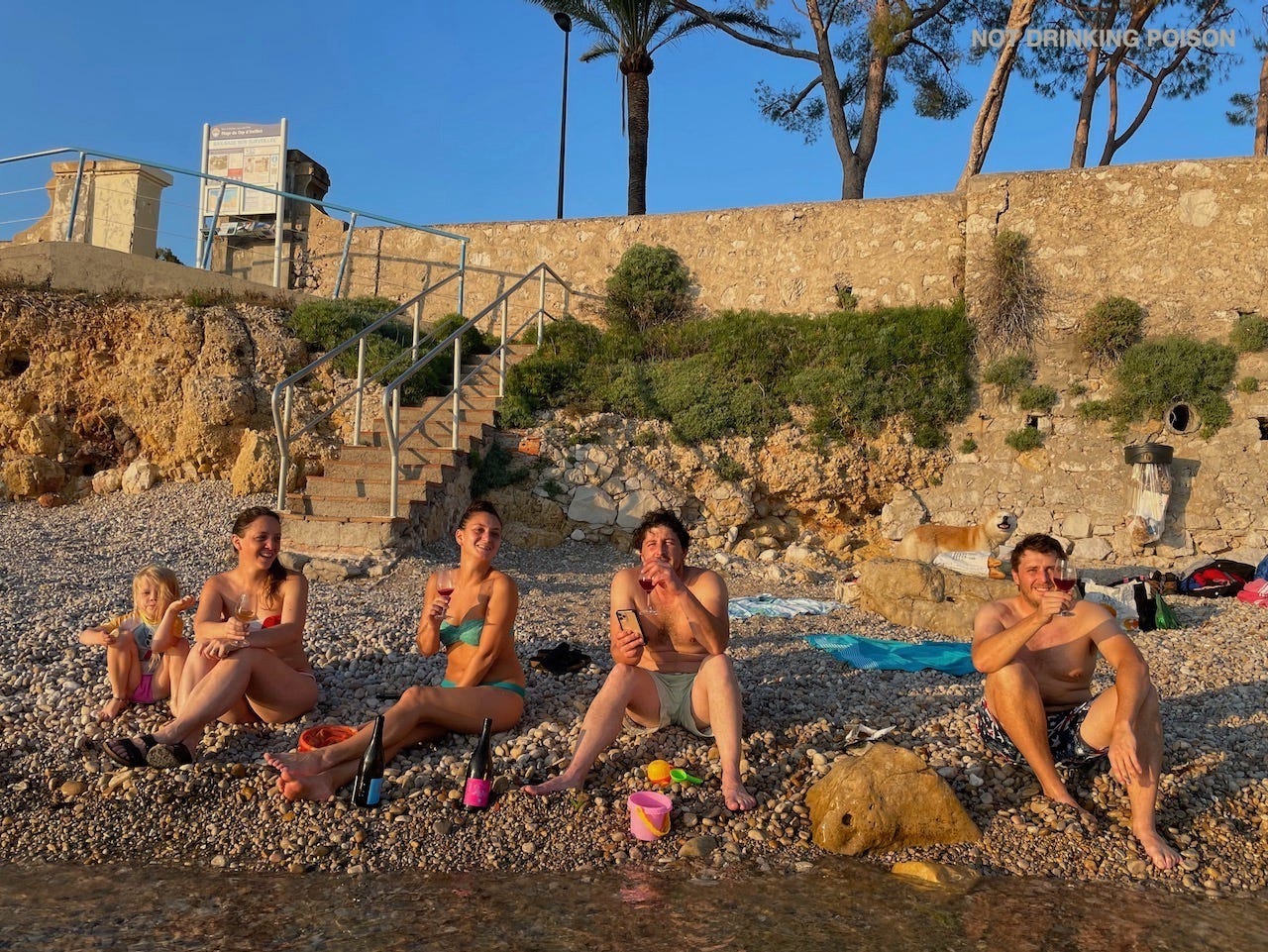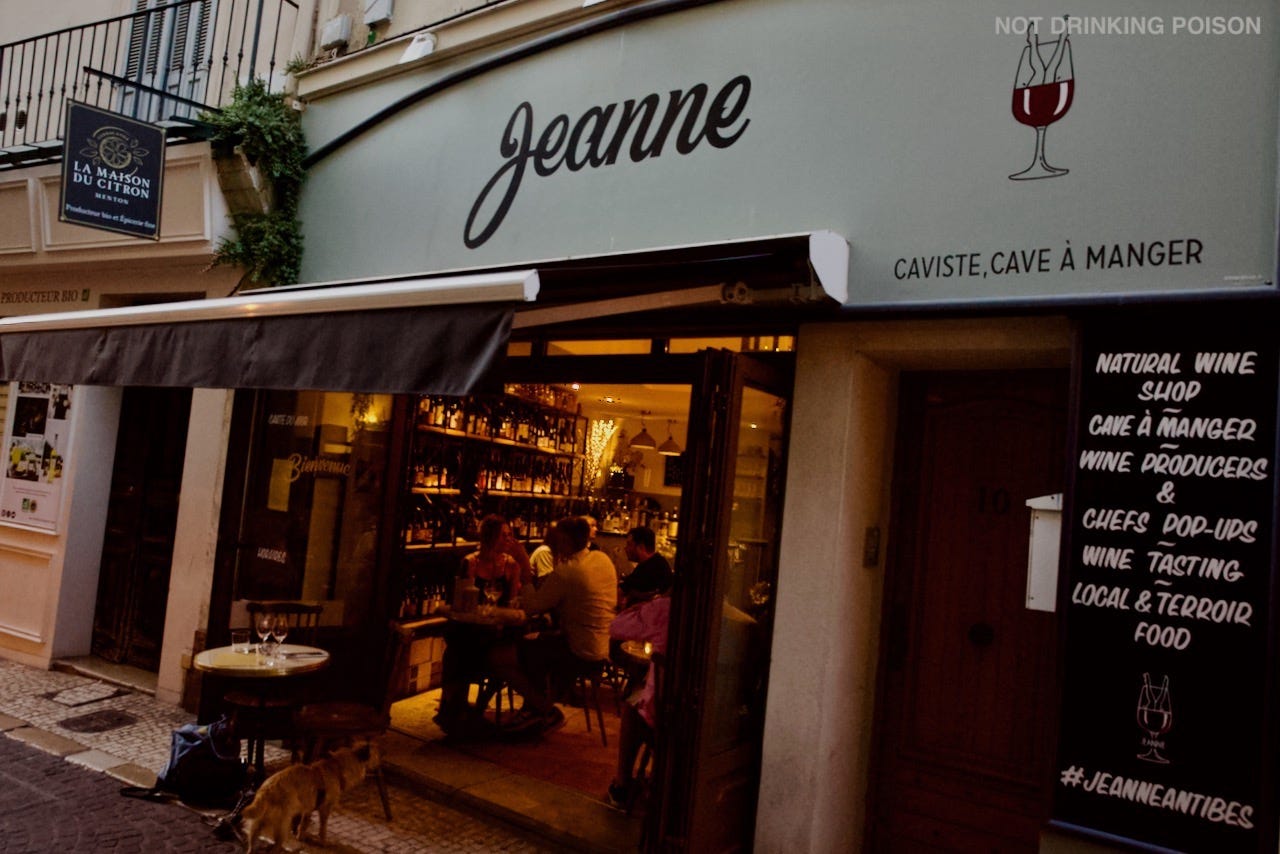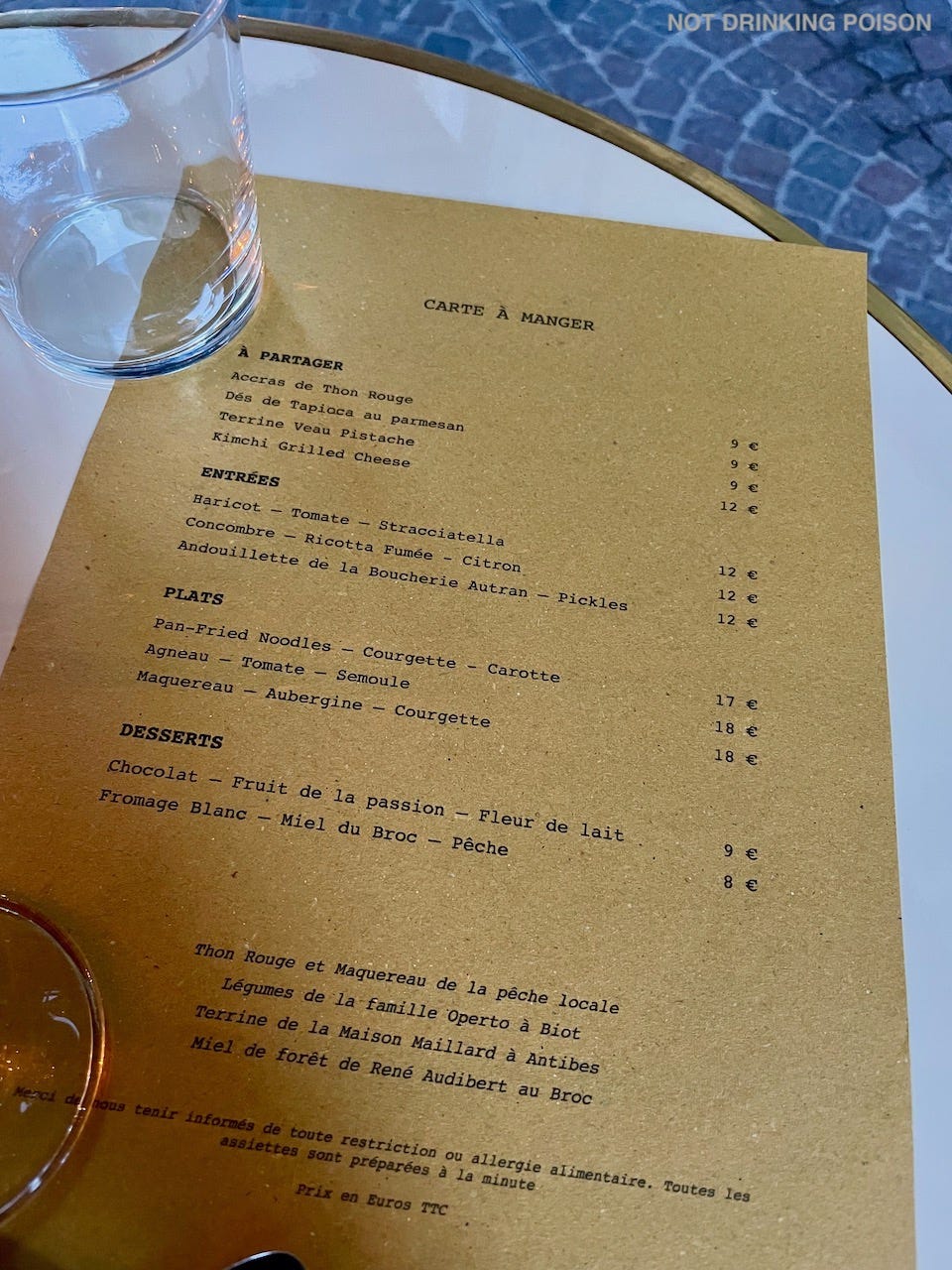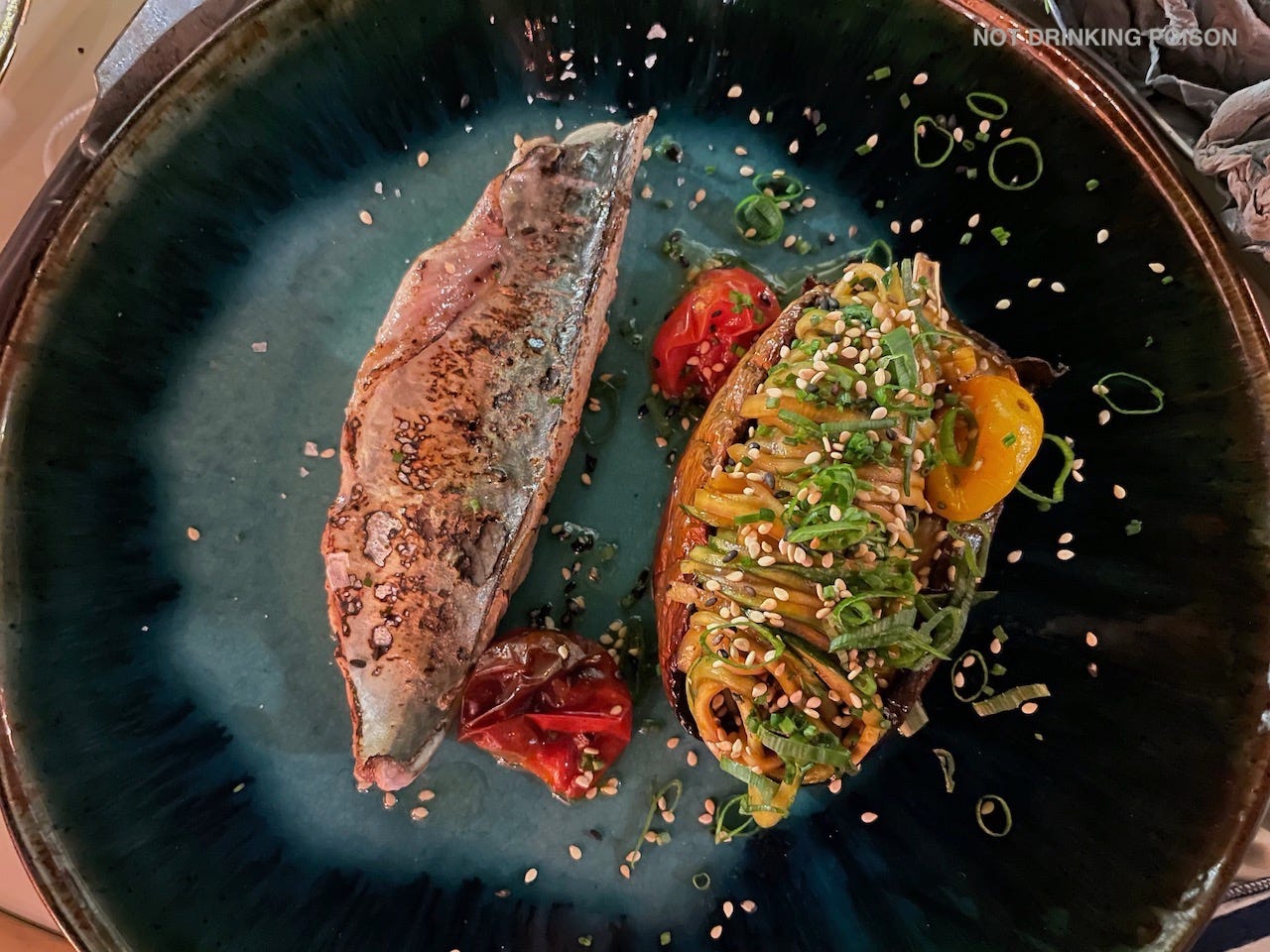Dining on the Wine Trail: Jeanne, Antibes
The surpassingly savvy sister duo of Marine and Elsa Gauthier have created another world-class natural wine outpost on the Côte d'Azur, a worthy compement to Nice's La Part des Anges.
It would not be fair at all to say the Côte d’Azur has no culture of the vine. But paradoxically it is a region where the culture of the vigneron has long been under threat, from Marseille to Nice, by rampant urbanization and speculative real estate agglomeration.1 Meanwhile the unflagging, basic “chic” appeal of family holidays along the coast has given rise to a benighted, middlebrow restaurant and wine retail scene, out of which, for many years, only scattered points of enlightenment shone: La Part des Anges and Le Canon in Nice, Les Buvards in Marseille, Le Tivoli in Le Cannet (now closed)…
Over the past half-decade this latter dynamic has finally changed, with a host of thoughtful new establishments debuting along this stretch of the Mediterranean, from Babel Babel and Banh Mei in Nice to the work of The Small Group in Marseille and Arles. Foremost among this new generation is Jeanne, a slim, two-storied bistrot situated on a side street of old-town Antibes, opened in 2017 by the young sommelière-chef sister duo of Marine and Elsa Gauthier.
Originally from Toulon, both sisters led careers in Paris - Marine in Finance, Elsa in fashion sales -before deciding to join forces on their restaurant project in Antibes, which they named in honor of their late mother.
In the kitchen Elsa, a self-taught chef, works alongside her Austrian chef-winemaker companion Paul Schuster, formerly of Vienna wine bistrot MAST. (Marine’s husband, incidentally, is also a chef-winemaker, La Part de Anges’ Brice Fortunato, and the couples live under the same roof in Antibes, making the border between the two establishments’ kitchens somewhat indistinct.)

Marine, who holds a Masters of Science in Wine Management from the International Organisation of Vine and Wine, runs the dining room and handles the extensive natural wine list, now 300 references strong and boasting handsome allocations from vigneron friends like Alain Castex, Olivier Cohen, Edouard Adam, Clos Fantine, Eveline Clairet, and more.
In truth, although I run into the Jeanne team often throughout the natural wine circuit in France, I’ve made it into old-town Antibes to dine at their restaurant only once, on the occasion of the eve of my girlfriend’s birthday in 2021. I blame the hellish parking situation in central Antibes, which is enough to make you want to feed yourself to sharks. (It has taken me years to realize that the best method for traveling around the Côte d’Azur in summertime, when car rental is insanely overpriced and trains are booked solid, is the otherwise intolerable ride-sharing app BlaBlacar.)
In its promotion of snacks to share, as in its discreet Asian inflections, Jeanne’s menu construction recalls a lower-stakes, Mediterranean cousin of the work of another sister duo, Tatiana and Katia Levha of Paris’ Le Servan.
Gauthier and Schuster excel at hot weather cuisine, the sorts of plates that still inspire hunger on a steaming summer evening in central Antibes: mackerel lightly seared besides refreshing ribbons of zucchini tucked inside supple roast eggplant, or fried noodles laced with carrot and bedecked in scallions, peanuts, and coriander.
If Nice’s La Part des Anges remains the regional destination for the canonical bottles of French natural wine, Marine Gauthier’s selection Jeanne ably highlights the work of a younger, more radical generation of vignerons from France and beyond. It is, naturally, a fine place to enjoy the incisive and lip-smacking Burgenland wines of Kollektiv Peternell. They are hot weather wines par excellence, and emblematic of the unlikely and beautiful culture-clash of Jeanne itself.
Jeanne
10 rue Sade
06600 ANTIBES
Tel: +33 4 93 34 55 74
FURTHER READING
A great 2019 interview with Marine and Elsa Gauthier at the site of AMA Selections Luxury Vacation Rentals.
Kollektiv Peternell: Bringing It All Back Home.
Between Burgenland and the Côte d’Azur: An Interview with Paul Schuster of Kollektiv Peternell.
The same dry, low-mildew-threat Mediterranean coastal climate that makes the region a national leader in organic agriculture (28.8% of viticultural surface as of 2019, while the national average is just 8.3%.) makes its land a tempting investment for luxury groups seeking to park money in production of conventional Provençal rosé. As a result, the price of a hectare in the Var has increased from 45’000€ to 125’000€ in under ten years.








